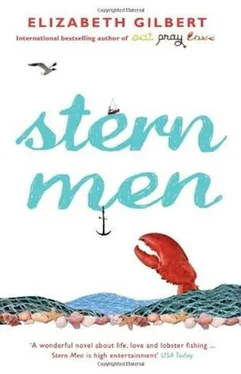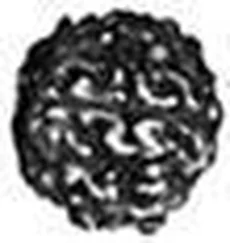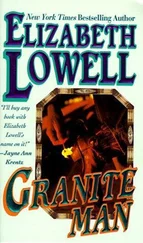“I know you try to rile me, Cal, but I’m not sure what you gain from it.”
“That’s not true, Ruth. I don’t try to rile you. I’m your biggest supporter.”
Ruth laughed sharply. “You know something, Cal? That elephant tusk really is an important find.”
“Yes. You said as much.”
“You didn’t even pay attention to the story, an interesting story, about an unusual shipwreck. You didn’t ask Webster how he found it. It’s an incredible story, and you didn’t pay any attention at all. It’d be annoying if it wasn’t so damn typical.”
“That’s not true. I pay attention to everything.”
“You pay a great deal of attention to some things.”
“Old Cal Cooley is incapable of not paying attention.”
“You should have paid more attention to that tusk, then.”
“I am interested in that tusk, Ruth. I’m actually holding it for Mr. Ellis so that he can look at it later. I think he’ll be very interested indeed.”
“What do you mean, holding it?”
“I’m holding it.”
“You took it?”
“As I’ve said, I’m holding it.”
“You took it. You sent them away without their tusk. Jesus Christ. Why would a person do something like that?”
“Would you like to share a cigarette with me, young lady?”
“I think you people are all pricks.”
“If you would like to smoke a cigarette, I won’t tell anybody.”
“I don’t fucking smoke, Cal.”
“I’m sure you do lots of bad things you don’t tell anybody about.”
“You took that tusk out of Webster’s hands and sent him away? Well, that’s a downright horrible thing to do. And typical.”
“You sure do look beautiful today, Ruth. I meant to tell you that immediately, but the opportunity did not arise.”
Ruth stood up. “OK,” she said, “I’m going home.”
She started to walk off, but Cal Cooley said, “As a matter of fact, I believe you need to stay.”
Ruth stopped walking. She didn’t turn around, but she stood still, because she knew from his tone what was coming.
“If you’re not too busy today,” Cal Cooley said, “Mr. Ellis would like to see you.”
They walked toward Ellis House together. They walked silently beyond the pastures and the ancient gardens and up the steps to the back verandah and through the wide French doors. They walked through the broad and shrouded living room, down a back hall, up the modest back stairs-the servants’ stairs-along another hall, and finally reached a door.
Cal Cooley stood as though to knock, but, instead, stepped back. He walked a few more paces down the hallway and ducked into a recessed doorway. When he gestured for Ruth to follow, she did. Cal Cooley put his big hands on Ruth’s shoulders and whispered, “I know you hate me.” And he smiled.
Ruth listened.
“I know you hate me, but I can tell you what this is all about if you want to know.”
Ruth did not reply.
“Do you want to know?”
“I don’t care what you tell me or don’t tell me,” Ruth said. “It doesn’t make any difference in my life.”
“Of course you care. First of all,” Cal said, in a hushed voice, “Mr. Ellis simply wants to see you. He’s been asking after you for a few weeks, and I’ve been lying. I’ve told him that you were still at school. Then I said you were working with your father on his boat.”
Cal Cooley waited for Ruth to respond; she didn’t.
“I should think you’d thank me for that,” he said. “I don’t like to lie to Mr. Ellis.”
“Don’t, then,” Ruth said.
“He’s going to give you an envelope,” Cal said. “It has three hundred dollars in it.”
Again, Cal waited for a response, but Ruth did not oblige, so he continued. “Mr. Ellis is going to tell you that it’s fun money, just for you. And, to a certain extent, that’s true. You can spend it on whatever you like. But you know what it’s really for, right? Mr. Ellis has a favor to ask of you.”
Ruth remained silent.
“That’s right,” Cal Cooley said. “He wants you to visit your mother in Concord. I’m supposed to take you there.”
They stood in the recessed doorway. His big hands on her wide shoulders were as heavy as dread. Cal and Ruth stood there for a long time. Finally, he said, “Get it over with, young lady.”
“Shit,” Ruth said.
He dropped his hands. “Just take the money. My suggestion to you is not to antagonize him.”
“I never antagonize him.”
“Take the money and be civil. We’ll figure out the details later.”
Cal Cooley stepped out of the doorway and walked back to the first door. He knocked. He whispered to Ruth, “That’s what you wanted, right? To know? No surprises for you. You want to know everything that’s going on, right?”
He threw open the door, and Ruth stepped inside, alone. The door closed behind her with a beautiful brushing sound, like the swish of expensive fabric.
She was in Mr. Ellis’s bedroom.
The bed itself was made, as seamlessly as though it were never used. The bed was made up as though the bedding had been produced at the same time as the piece of furniture itself and had been tacked or glued to the woodwork. It looked like a display bed in an expensive store. Bookcases were everywhere, holding rows of dark books, each precisely the same shade and size as its neighbors, as though Mr. Ellis owned one volume and had had it repeated throughout the room. The fireplace was lit, and there were heavy duck decoys on the mantel. The musty wallpaper was interrupted by framed prints of clippers and tall ships.
Mr. Ellis was near the fire, sitting in a large, wing-back chair. He was very, very old and very thin. A plaid lap rug was pulled high over his waist and tucked around his feet. His baldness was absolute, and his skull looked thin and cold. He held out his arms to Ruth Thomas, his palsied palms upward and open. His eyes were swimming in blue, swimming with tears.
“It’s nice to see you, Mr. Ellis,” Ruth said.
He grinned and grinned.
In traveling over the bottom in search of its prey, the lobster walks nimbly on its delicate legs. When taken out of the water, it can only crawl, owing to the heavy weight of the body and the claws, which the slender legs are now unable to sustain.
– The American Lobster: A Study of Its Habits and Development Francis Hobart Herrick, Ph.D. 1895
THAT NIGHT, when Ruth Thomas told her father she had been to Ellis House, he said, “I don’t care who you spend your time with, Ruth.”
Ruth had gone looking for her father immediately after she left Mr. Ellis. She walked down to the harbor and saw that his boat was in, but the other fishermen said he’d long been done for the day. She tried him at their house, but when she called for him, there was no answer. So Ruth got on her bicycle and rode over to the Addams brothers’ house to see whether he was visiting Angus for a drink. And so he was.
The two men were sitting on the porch, leaning back in folding chairs, holding beers. Senator Simon’s dog, Cookie, was lying on Angus’s feet, panting. It was late dusk, and the air was shimmering and gold. Bats flew low and fast above. Ruth dropped her bicycle in the yard and stepped up on the porch.
“Hey, Dad.”
“Hey, sugar.”
“Hey, Mr. Addams.”
“Hey, Ruth.”
“How’s the lobster business?”
“Great, great,” Angus said. “I’m saving up for a gun to blow my fucking head off.”
Angus Addams, quite the opposite of his twin brother, was getting leaner as he grew older. His skin was damaged from the years spent in the middle of all kinds of bad weather. He squinted, as if looking into a field of sun. He was going deaf after a lifetime spent too near loud boat engines, and he spoke loudly. He hated almost everyone on Fort Niles, and there was no shutting him up when he felt like explaining, in careful detail, why.
Читать дальше









